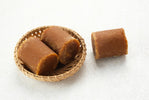
The Nutritional Profile of Jaggery as a Protein Supplement
, by Sandesh Prasannakumar, 11 min reading time
New Year Sale Is Live - Shop Now!
New Year Sale Is Live - Shop Now!
New Year Sale Is Live - Shop Now!
New Year Sale Is Live - Shop Now!
New Year Sale Is Live - Shop Now!
New Year Sale Is Live - Shop Now!
New Year Sale Is Live - Shop Now!
New Year Sale Is Live - Shop Now!
New Year Sale Is Live - Shop Now!
New Year Sale Is Live - Shop Now!

, by Sandesh Prasannakumar, 11 min reading time
Jaggery is another traditional product of sugarcane or palm tree sap that people of Asia and Africa frequently use. While refined sugar is known to be very unhealthy for the body, jaggery is commonly recommended because of the many nutrients it contains. Although it is acclaimed mainly for its mineral compositions and effects in supplying fast energy, it comes as great interest to examine it as a protein supplement. This article focuses on some of the nutritional content found in jaggery and offers an evaluation of its potential in the provision of proteins.
Jaggery is prepared using an age-old process of heating raw sugarcane or palm tree juice till it becomes concentrated and forms a mass. A considerable portion of the molasses remains in the unrefined product, giving it a darker color and richer nutrients.
Jaggery contains:
Protein is definitely not something that could be associated with jaggery based on the traditional knowledge about it. It has almost no protein and generally contains less than 0.1 grams per 100 grams. This makes it a poor alternative to conventional protein sources such as whey, soy, or pea protein, which usually offer high amounts of protein per portion.
|
Supplement |
Protein per 100 grams |
|
Whey Protein |
80-90 grams |
|
Soy Protein |
70-80 grams |
|
Pea Protein |
75-85 grams |
|
Jaggery |
<0.1 grams |
In view of this, it means that jaggery cannot be compared to conventional protein sources in terms of offering the necessary amount of protein required in muscle building and general body repair and growth.
Despite its low protein content, jaggery is packed with various micronutrients.
The instant source of energy is in the form of carbohydrates because jaggery contains a rich amount of it. It is also used as herbal medicine which is taken to overcome fatigue and regain strength.
The molasses content in jaggery provides antioxidants, which can help combat oxidative stress and reduce inflammation.
While jaggery itself is not a protein supplement, it can be used creatively in protein-rich diets to enhance flavor and provide additional nutritional benefits.
Ingredients:
Instructions:
Nutritional Profile (approximate per ball):
Ingredients:
Instructions:
Nutritional Profile (approximate per serving):
Ingredients:
Instructions:
Nutritional Profile (approximate per bar):
While jaggery supplements are not viable as a primary source of protein due to their minimal protein content, jaggery can still play a beneficial role in a balanced diet. Its rich micronutrient profile, digestive benefits, and quick energy provision make it a valuable addition to various recipes, particularly in enhancing the nutritional quality of protein-rich foods. To maximize the benefits, consider combining jaggery with traditional protein sources or supplements, creating delicious and nutritious options that support overall health and well-being. For those looking for protein supplementation, it's essential to rely on conventional sources while using jaggery as a complementary ingredient to enhance flavor and nutritional value.
For all your protein and supplement needs, visit Genetic Nutrition!